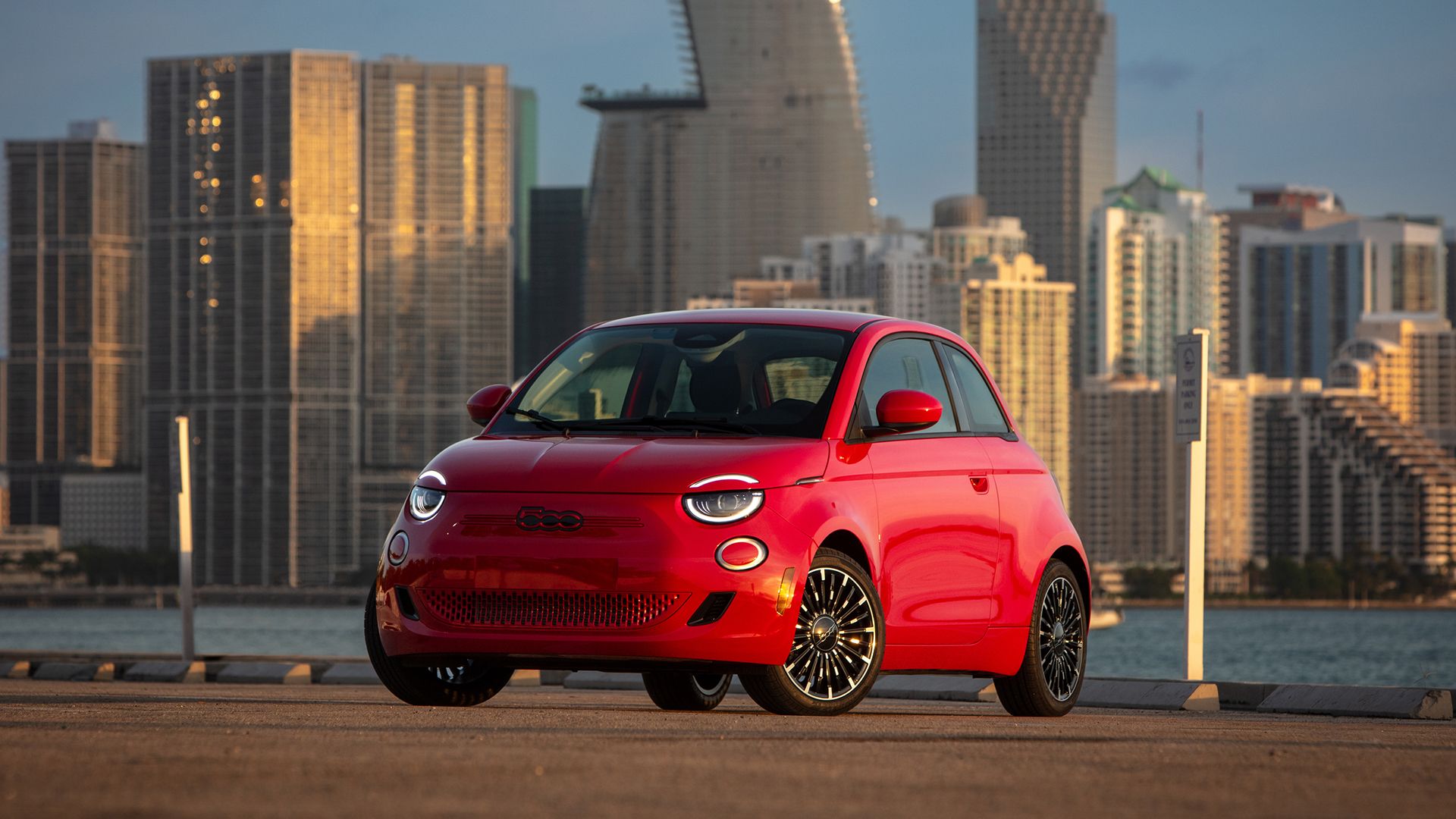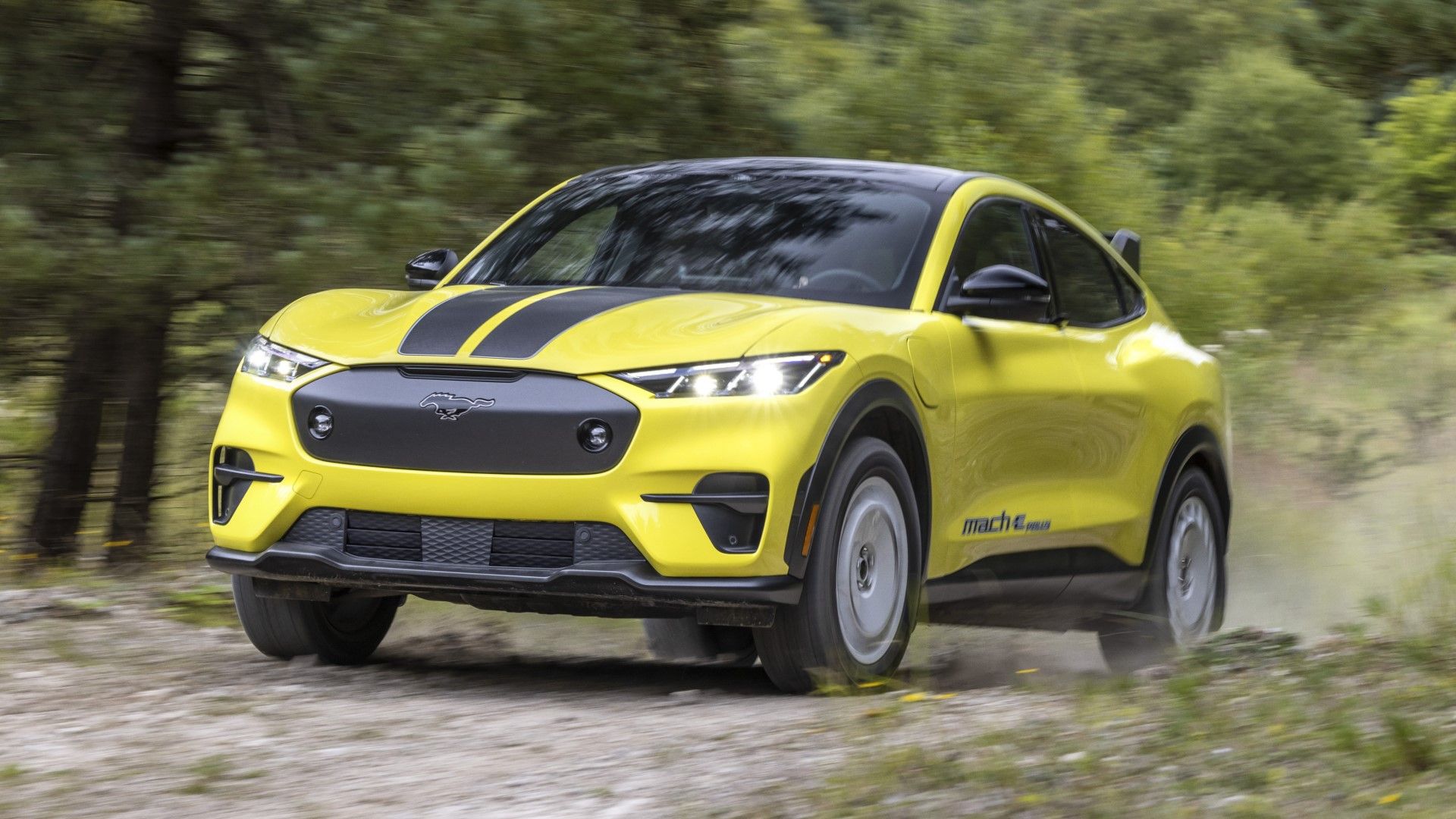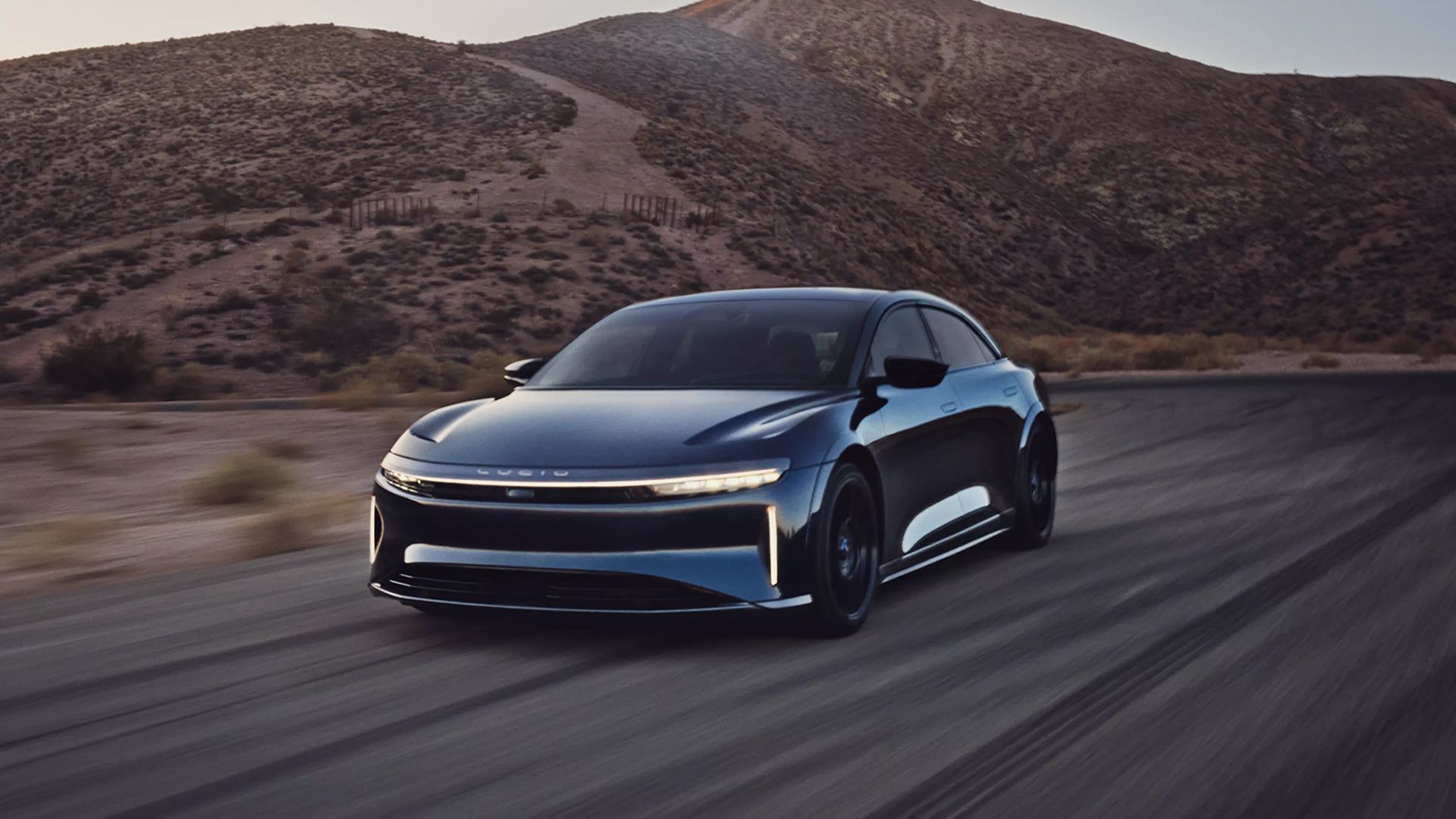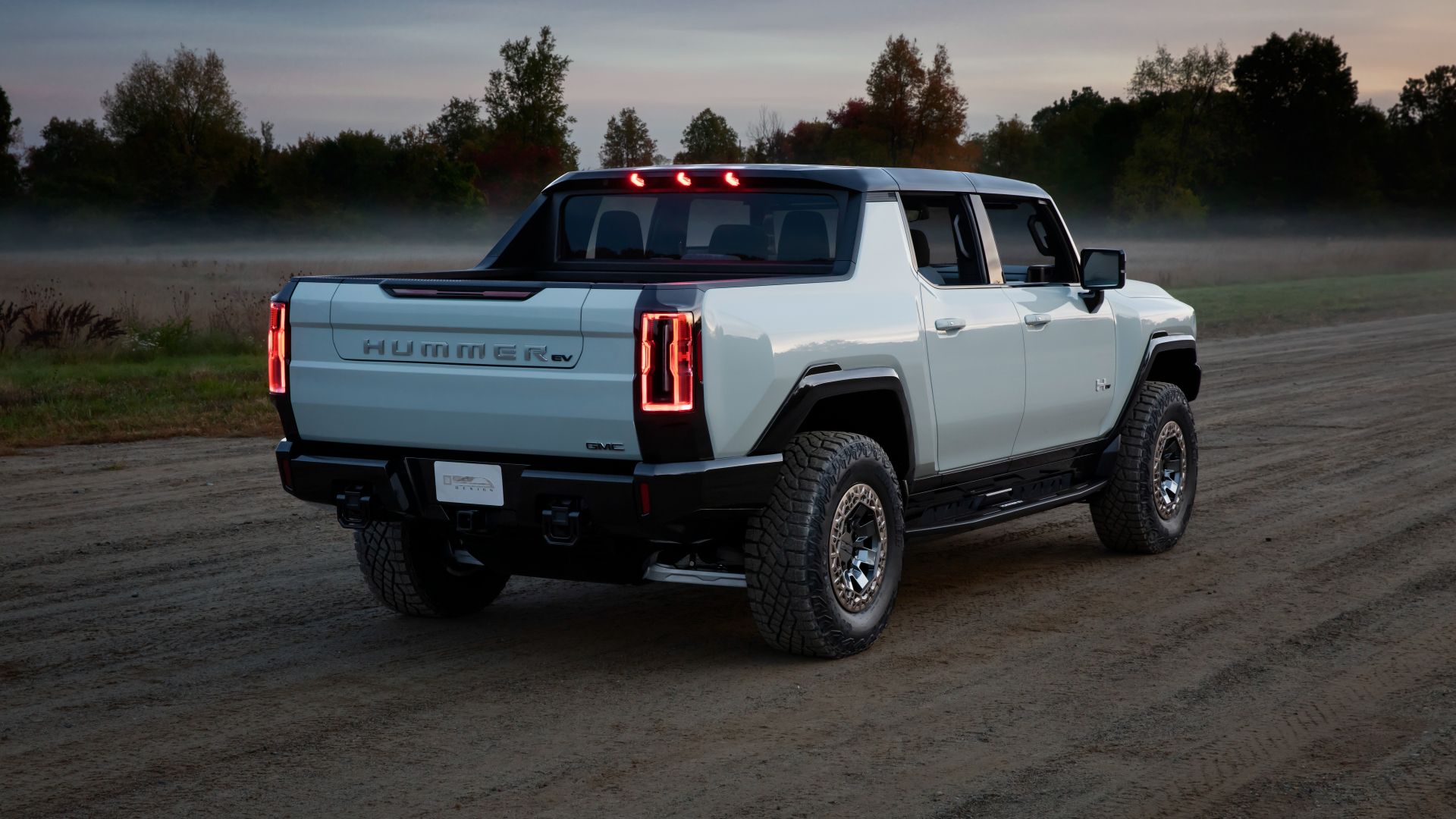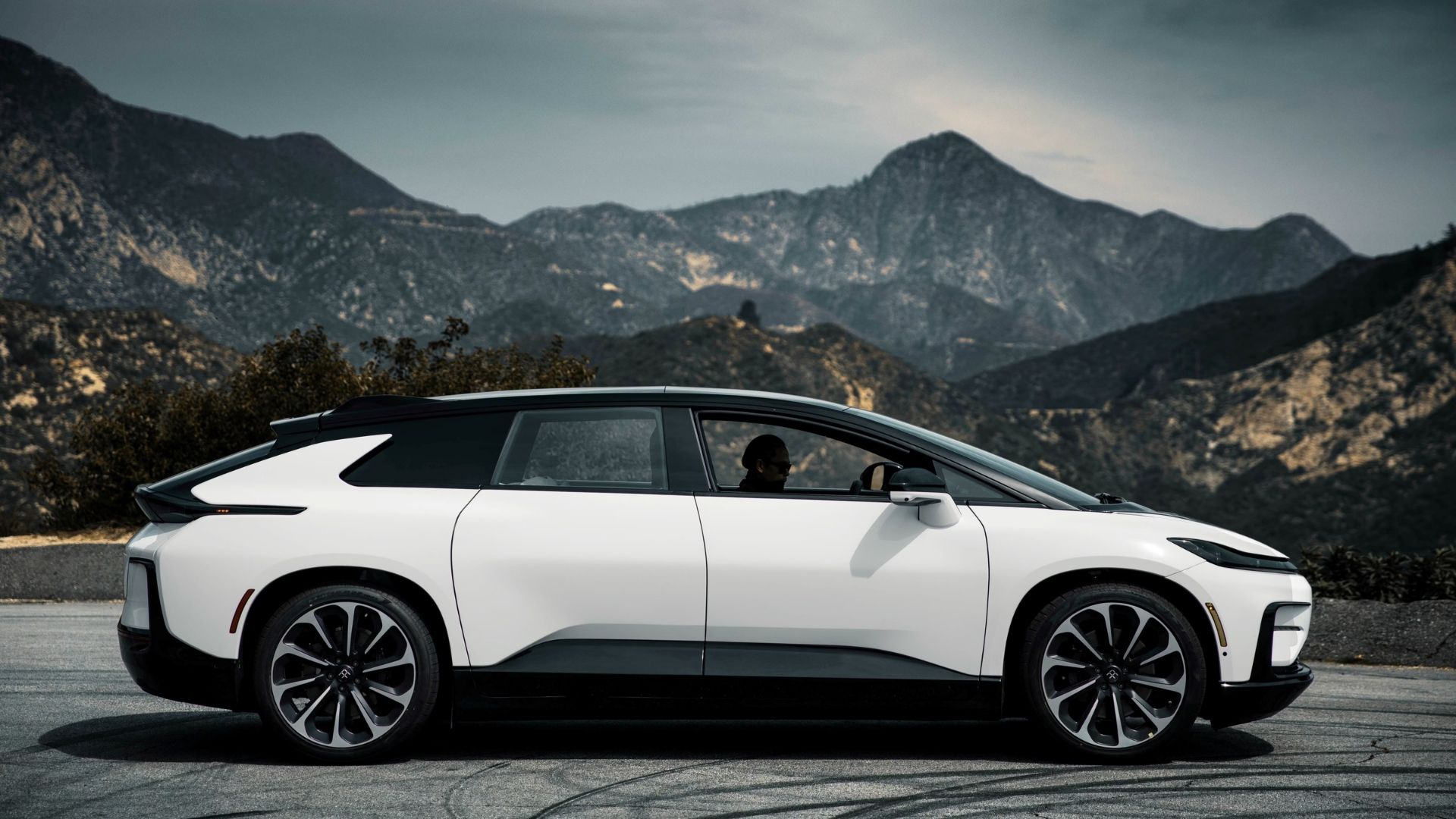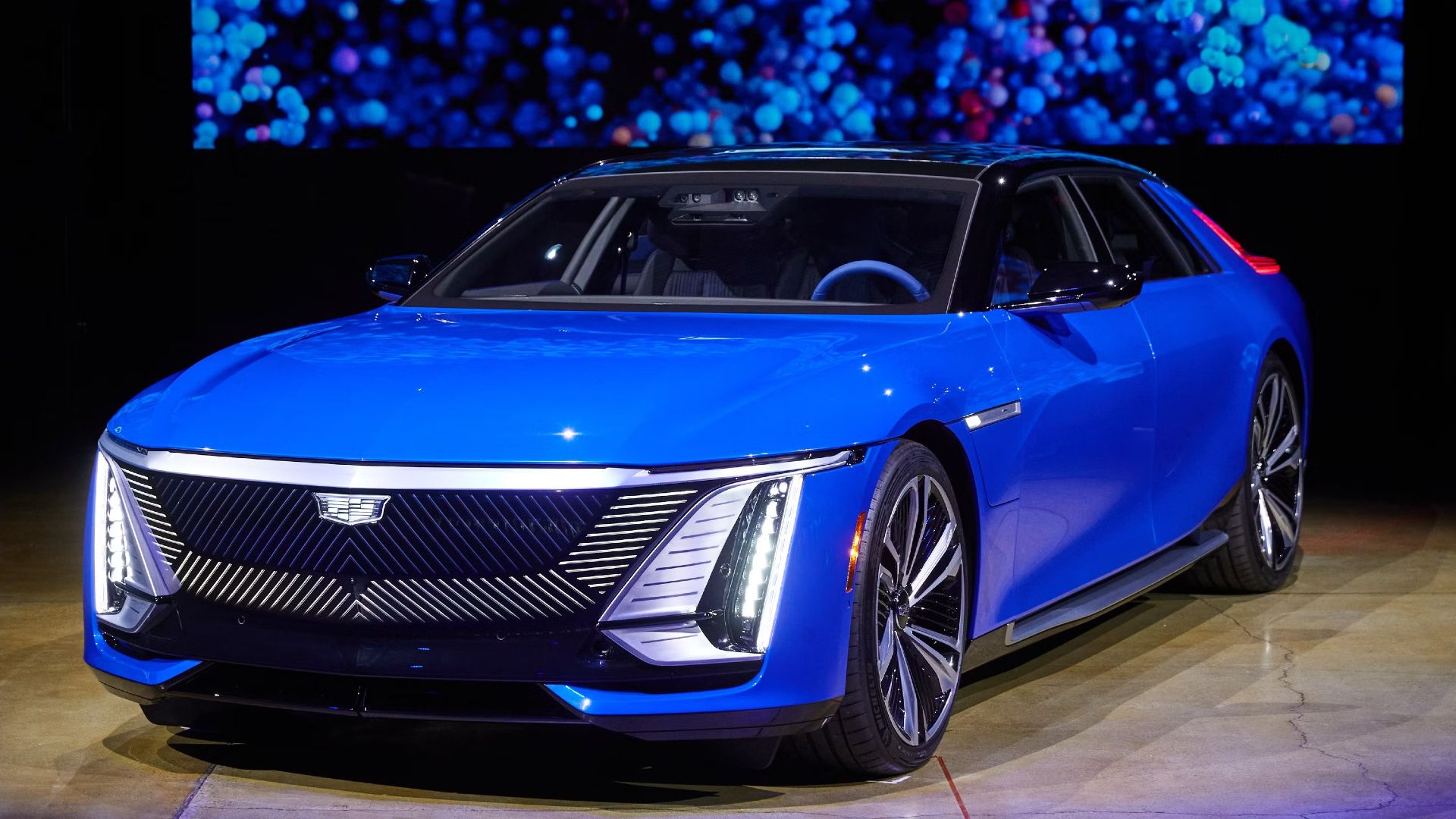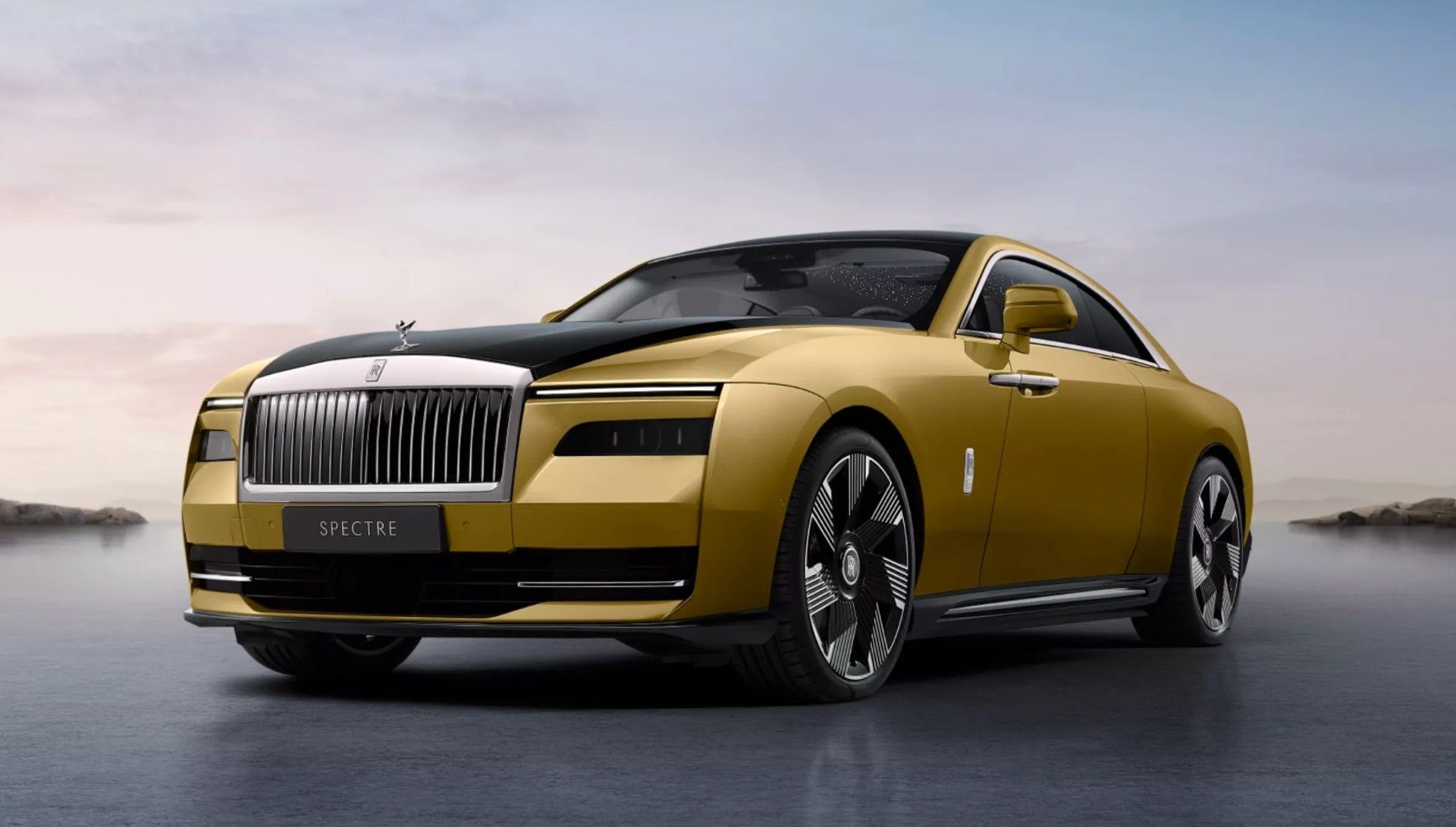10 Electric Vehicles We Didn’t See Coming By A Long Shot
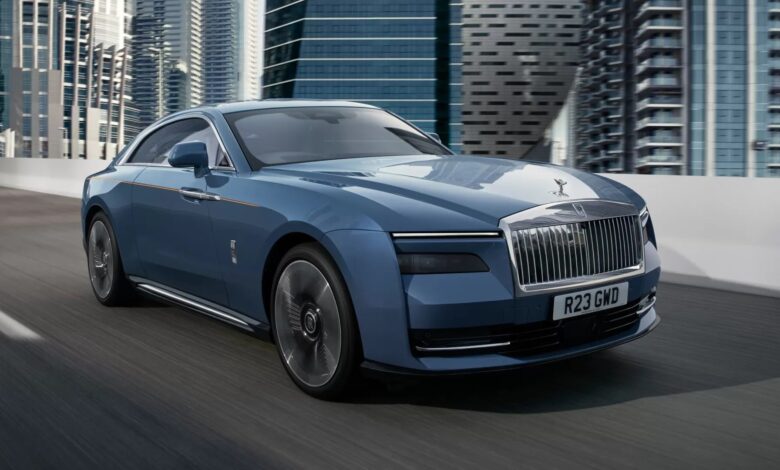
Electric cars have entered the mainstream market in abundance. These brands base a lot of new products on existing monikers or have introduced all-new model lines. For the most part, these EVs were fully expected, as the brands were open about their imminent arrival. However, there are some electric cars that take us by complete surprise for various reasons. The EV market is still relatively small, as most new car consumers still gravitate towards more affordable ICE options, but electric cars are slowly attracting more potential buyers.
An array of different products now fill the new EV market, in a bid to cater to as many demands as possible. We now have access to electric cars in all shapes and sizes that cater to different budgets and are purpose-built to satisfy different requirements. To fulfill these demands and stand out from the crowd, manufacturers really had to stretch out their creative juices, resulting in some of the most surprising electric cars that we never thought we’d get to see.
In order to give you the most up-to-date and accurate information possible, the data used to compile this article was sourced from various manufacturer websites. The models below have been ranked based on their starting MSRP.
10 Electric Cars That Are Faster Than They Look
Many EVs are blazingly fast but look slower than gas-powered options. Here are some of the fastest “sleeper” cars on the market.
1 Fiat 500e
Starting MSRP: $34,095
The Fiat 500e is a surprising EV because we thought we’d never get to see it enter the American market. Last year, Fiat confirmed that it would finally be introducing its all-electric compact hatchback into the U.S. market, almost four years after the brand launched it in the European market under the old FCA banner. As a result, it is a fairly outdated EV that produces relatively low power outputs and limited range figures, but it’s available at a very competitive starting price.
Performance Specifications
|
Engine |
Single Permanent-Magnet Motor |
|
Transmission |
Single-Speed Automatic |
|
Horsepower |
117 HP |
|
Torque |
162 LB-FT |
|
Driveline |
Front-Wheel Drive |
|
0-60 MPH |
8.5 Seconds |
|
Top Speed |
94 MPH |
(Data was collected from Fiat)
The 500e is a niche EV that you can only use as a daily driver in dense, extra-urban settings. It’s also not particularly fast, with a claimed 8.5-second 0-60 MPH time and 94 MPH top speed, meaning long-distance travel and highway driving may be more of a challenge. You’ll also have to deal with a very small cabin with limited trunk space, so it’s not even usable as a small entry-level family car. Regardless, it adds variety to the new EV car market and makes electromobility significantly more accessible.
Pros
- Compact proportions perfect for dense urban commuting
- Funky styling
- Enjoyable hatchback driving dynamics
Cons
- Limited range
- Compact interior makes it a bit impractical
- An older EV that enters the U.S. too late
2 Fisker Ocean
Starting MSRP: $38,999
Although Fisker executed a lengthy campaign for its all-new EV SUV, the automotive world was initially stunned to learn of the brand’s triumphant return. The company founder was successfully able to buy the business back so that he could continue his dream of making an aspirational and eco-friendly car, which began with the original Karma. The result is a compelling new mid-size EV SUV option, available with various drivetrain options, good performance outputs, and a spacious interior.
Performance Specifications
|
Sport |
Ultra |
Extreme |
|
|
Powertrain |
Single Permanent-Magnet Motor |
Dual Permanent-Magnet Motors |
Dual Permanent-Magnet Motors |
|
Transmission |
Single-Speed Automatic |
Single-Speed Automatic |
Single-Speed Automatic |
|
Horsepower |
275 HP |
564 HP |
564 HP |
|
Torque |
N/A |
543 LB-FT |
543 LB-FT |
|
Driveline |
Front-Wheel Drive |
All-Wheel Drive |
All-Wheel Drive |
|
0-60 MPH |
6.9 Seconds |
3.9 Seconds |
3.7 Seconds |
|
Top Speed |
128 MPH |
128 MPH |
128 MPH |
(Data was collected from Fisker)
Admittedly, the brand is under fire for a poor launch after delivering some units with noteworthy software glitches, but for the most part, the new EV is receiving some good feedback, particularly for its impressive 0-60 MPH times and good EPA-estimated energy consumption returns. Independent tests reveal the model easily hits its claimed 0-60 MPH time. The entry-level model also comes in at a very competitive starting price without skimping on too many standard features. Fisker’s future is in jeopardy, but this EV deserves to be on the list either way.
Pros
- Dynamic exterior styling
- Competitive starting price
- Generous range returns
Cons
- Initial quality quirks
- Poor range from the base trim
- Substandard handling characteristics
3 Ford Mustang Mach-E
Starting MSRP: $41,890
We all knew that Ford was heavily investing in electric technology, but it left gearheads stunned when it announced that its first mainstream EV was going to be a reiteration of the famous Mustang moniker. The newcomer outraged a lot of die-hard fans, because of how Ford repurposed their beloved muscle car into an electric family crossover, but once it hit dealerships, it quickly became one of the Blue Oval’s most popular new cars. Ford did a great job inappropriately spacing out the range with an accessible single-motor trim and a high-performance GT model that rivals the Mustang GT’s performance abilities.
Performance Specifications
|
RWD |
AWD |
GT |
Rally |
|
|
Engine |
Single permanent-magnet motor |
Dual permanent-magnet motors |
Dual permanent-magnet motors |
Dual permanent-magnet motors |
|
Transmission |
Single-Speed Automatic |
Single-Speed Automatic |
Single-Speed Automatic |
Single-Speed Automatic |
|
Horsepower |
266 HP |
266 HP |
480 HP |
480 HP |
|
Torque |
317 LB-FT |
428 LB-FT |
600 LB-FT |
650 LB-FT |
|
Driveline |
Rear-Wheel Drive |
All-Wheel Drive |
All-Wheel Drive |
All-Wheel Drive |
|
0-60 MPH |
6.3 Seconds |
4.8 Seconds |
3.8 Seconds |
3.5 Seconds |
|
Top Speed |
114 MPH |
114 MPH |
120 MPH |
120 MPH |
(Data was collected from Ford)
The new Rally trim is a pleasant addition to the range and also something that we didn’t see coming, considering the Mustang moniker doesn’t have a strong association with rally racing. Ford’s involvement in rally is extensive, making this special edition trim a desirable and appropriate option that replaces the GT Performance. Tests reveal the base dual-motor model to be fast enough to hit 0-60 MPH in 5.2 seconds, which is just a bit slower than the company’s claimed time.
Pros
- Amazing EV performance abilities
- Spacious interior
- Competitive pricing strategy
Cons
- Low top speed
- Restrictive seat adjustments
- Lacks a comfortable suspension setting

10 Electric Cars With The Lowest Range
Not every automaker out there is able to offer electric cars with hundreds of miles of range!
4 Tesla Cybertruck
Starting MSRP: $62,985
The Cybertruck is still a car that we are struggling to wrap our heads around. Kudos to Tesla for pulling it off and selling an impressive number of units at launch, but we question whether this was truly a necessary product. The Cybertruck was subject to a lengthy development cycle filled with controversy and delays, including an odd claim that it would double up as an amphibious vehicle. Many thought this would evolve into a vaporware project destined for the archives, but Tesla managed to get a final production-ready Cybertruck out against all odds.
Performance Specifications
|
RWD (2025) |
AWD |
Cyberbeast |
|
|
Engine |
Single-Permanent-Magnet Motor |
Dual-Permanent-Magnet Motors |
Triple-Permanent-Magnet Motors |
|
Transmission |
Single-Speed Automatic |
Single-Speed Automatic |
Single-Speed Automatic |
|
Horsepower |
315 HP |
600 HP |
845 HP |
|
Torque |
N/A |
525 LB-FR |
686 LB-FT |
|
Driveline |
Rear-Wheel Drive |
All-Wheel Drive |
All-Wheel Drive |
|
0-60 MPH |
6.5 Seconds |
4.1 Seconds |
2.6 Seconds |
|
Top Speed |
112 MPH |
112 MPH |
130 MPH |
|
Towing Capacity |
7,500 Pounds |
11,000 Pounds |
11,000 Pounds |
|
Payload Capacity |
N/A |
2,500 Pounds |
2,500 Pounds |
(Data was collected from Tesla)
The Cybertruck isn’t a problem-free EV, as drivetrain failure, corroding exterior panels, and a finger-piercing frunk mechanism affect many units. Putting all of these quirks aside, the Cybertruck produces amazing performance results, decent energy consumption, and range claims, and is undeniably the most head-turning truck money can buy today.
Pros
- Unique exterior styling
- Amazing towing capacities
- Good acceleration results
Cons
- Noteworthy safety concerns
- Build quality issues
- Limiting truck bed
5 Lucid Air
Starting MSRP: $71,400
The Lucid Air is a result of what happens when you craft your skillset at an established electric carmaker and aim to make an EV that surpasses that. It is the birthchild of former Tesla Motors Vice President Bernard Tse. It was a completely unexpected industry move that got ahead of the EV gold rush. This business decision ultimately paid off, as the all-new manufacturer quickly rose to the top to become one of the most aspirational electric brands currently operating in the U.S. It’s an amazing feat considering more established brands are struggling to make their electric cars profitable.
Performance Specifications
|
Pure |
Touring |
Grand Touring |
Sapphire |
|
|
Engine |
Single Permanent-Magnet Motor |
Dual Permanent-Magnet Motors |
Dual Permanent-Magnet Motors |
Triple Permanent-Magnet Motors |
|
Transmission |
Single-Speed Automatic |
Single-Speed Automatic |
Single-Speed Automatic |
Single-Speed Automatic |
|
Horsepower |
430 HP |
620 HP |
819 HP |
1,234 HP |
|
Torque |
406 LB-FT |
885 LB-FT |
885 LB-FT |
1,430 LB-FT |
|
Driveline |
Rear-Wheel Drive |
All-Wheel Drive |
All-Wheel Drive |
All-Wheel Drive |
|
0-60 MPH |
4.5 Seconds |
3.4 Seconds |
3.0 Seconds |
1.89 Seconds |
|
Top Speed |
124 MPH |
140 MPH |
168 MPH |
205 MPH |
(Data was collected from Lucid)
The Lucid Air Sapphire is the model that commands most of the attention, with its triple electric motor configuration, resulting in class-leading power outputs and performance figures, but at a very high cost with limited availability. The entry-level Pure option is much more accessible, and still manages to deliver some good performance figures, but if you want the best range, you have to get the Grand Touring, which covers 516 miles on a single charge, which is the highest estimate in the new EV car market. This trim also easily hits 0-60 MPH in 3.2 seconds, just fractionally slower than what the brand claims.
Pros
- Sleek and stylish
- Class-leading performance
- Good comfort levels
Cons
- Interior quality concerns
- Extremely expensive
- Sluggish infotainment software
6 GMC Hummer EV SUT
Starting MSRP: $96,550
No one was expecting Hummer to make a comeback, especially not as a dedicated electric car. This time around it wears the GMC moniker, but it’s visually a clear continuation of the H1 Hummer that became a cult icon in the 90s. This is primarily thanks to its large exterior proportions and off-road-focused design philosophy. GM very quickly brought the model to market after a very short production cycle. Despite its size and high starting price, the EV truck has been a huge success.
Performance Specifications
|
Hummer EV 2X |
Hummer EV 3X |
Hummer Edition 1 |
|
|
Engine |
Dual Permanent-Magnet Motors |
Triple Permanent-Magnet Motors |
Triple Permanent-Magnet Motors |
|
Transmission |
Single-Speed Automatic |
Single-Speed Automatic |
Single-Speed Automatic |
|
Horsepower |
570 HP |
1,000 HP |
1,000 HP |
|
Wheel Torque |
7,400 LB-FT |
11,500 LB-FT |
11,500 LB-FT |
|
Driveline |
All-Wheel Drive |
All-Wheel Drive |
All-Wheel Drive |
|
0-60 MPH |
N/A |
3.0 Seconds |
3.0 Seconds |
|
Top Speed |
106 MPH |
106 MPH |
106 MPH |
|
Towing Capacity |
7,500 Pounds |
7,500 Pounds |
7,500 Pounds |
|
Payload Capacity |
1,300 Pounds |
1,300 Pounds |
1,300 Pounds |
(Data was collected from Hummer)
The Hummer EV doesn’t disappoint in the performance department, thanks to its effective triple-motor configuration. GMC combines this with the group’s robust body-on-frame EV chassis, making it a very capable and dependable EV to take on off-road courses. You just have to be ready for the large battery pack’s expensive charging costs.
Pros
- Futuristic but recognizable design
- Nifty crab walk feature
- Versatile off-roading prowess
Cons
- Poor energy economy
- Large dimensions can be annoying
- Far more expensive than the Silverado EV
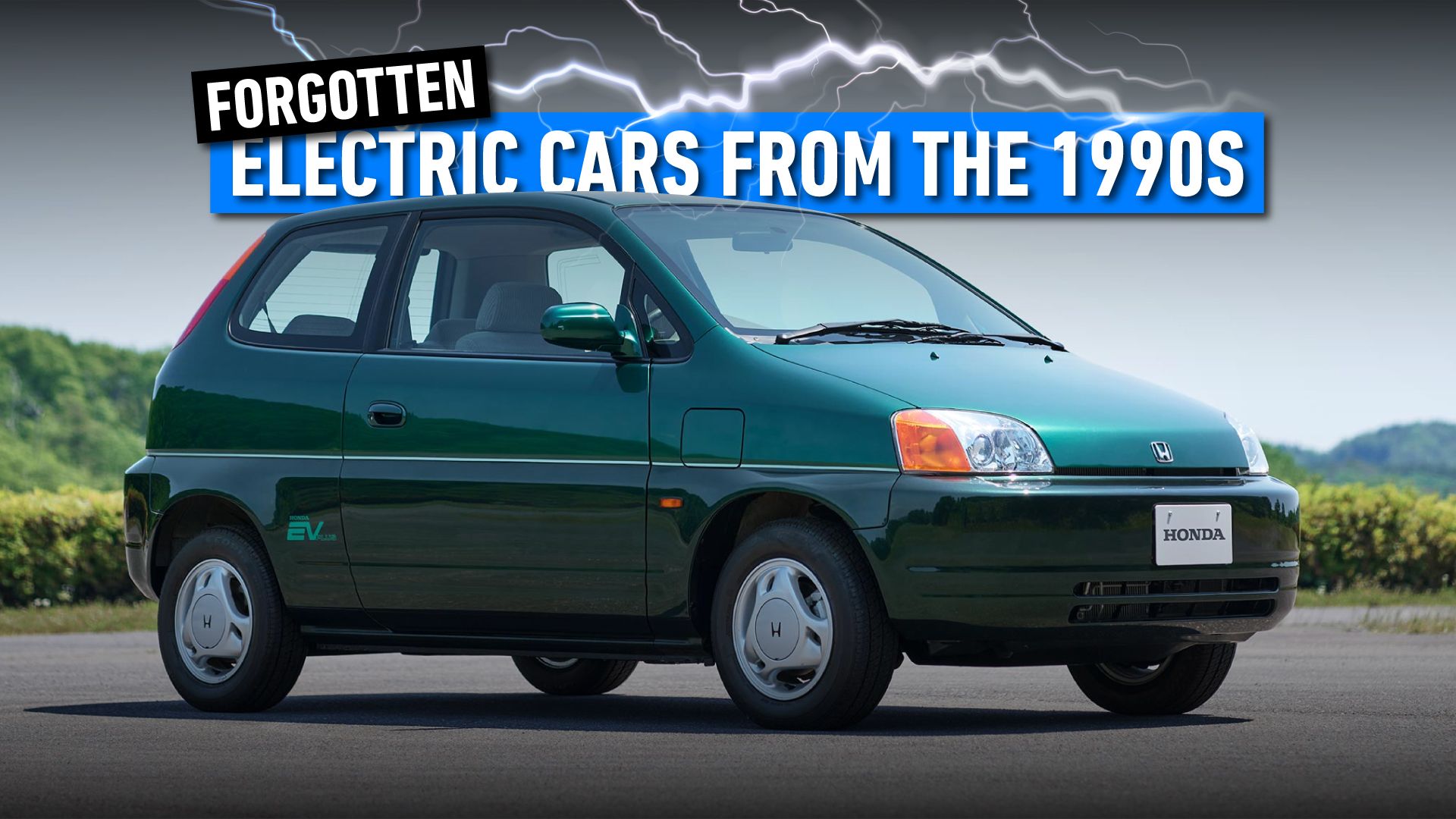
10 Electric Cars From The 1990s You’ve Probably Forgotten About
EVs may have picked up steam in the last decade or so, but they have been around for long. Here are 10 EVs from the ’90s you may not remember.
7 Porsche Taycan Turbo GT
Starting MSRP: $230,000
The Porsche Taycan is not a surprise EV by many standards, but the all-new Turbo GT took a lot of fans by surprise because, for a long time, we thought the Turbo S was as fast as the Taycan was ever going to get. The new top-of-the-range model brings the best Weissach has to offer, with a heavily revised dual-electric motor configuration producing enough power to match Tesla and Lucid’s acceleration times.
Performance Specifications
|
Engine |
Dual Permanent-Magnet Motors |
|
Transmission |
Two-Speed Automatic |
|
Horsepower |
1,019 HP |
|
Torque |
988 LB-FT |
|
Driveline |
All-Wheel Drive |
|
0-60 MPH |
2.1 Seconds |
|
Top Speed |
180 MPH |
(Data was collected from Porsche)
Porsche also made considerable chassis and aerodynamic refinements, to make the Taycan faster than any other electric sedan on track. Despite these comprehensive alterations, the Taycan Turbo GT remains a practical and comfortable EV for daily use, with the added benefit of returning good energy consumption figures.
Pros
- The best EV Porsche has to offer
- Sleek but athletic styling
- Purpose-built for track days
Cons
- An expensive EV track toy
- Optional extras can get a bit ridiculous
- Not as practical as the standard Turbo
8 Faraday Future FF 91
Starting MSRP: $309,000
The FF 91 is a surprising EV because, for a long time, we all thought this brand would die before its first production model reached its delivery date. Faraday Future has been riddled with controversy relating to its financial performance since its inception, leading to rumors that the brand’s inaugural EV would ultimately be scrapped. Some tactical deals, difficult decisions, and strategic alliances resulted in the brand eventually delivering the first units.
Performance Specifications
|
Engine |
Triple Permanent-Magnet Motors |
|
Transmission |
Single-Speed Automatic |
|
Horsepower |
1,050 HP |
|
Torque |
1,458 LB-FT |
|
Driveline |
All-Wheel Drive |
|
0-60 MPH |
2.27 Seconds |
|
Top Speed |
155 MPH |
(Data was collected from Faraday Future)
The FF 91 ticks a lot of boxes as a high-performance SUV EV, but that’s only if you can meet its very high starting price. It’s still plagued by slow production output, so it remains a hard car to come by. You also have to justify whether this newcomer is worth such a high premium over its rivals, especially considering its troublesome beginnings.
Pros
- Amazing performance claims
- High luxury level
- Spacious interior
Cons
- Starting price is very questionable
- Deliveries took far too long
- Awkward styling
9 Cadillac Celestiq
Starting MSRP: $340,000
No one expected the Cadillac Celestiq, because the American luxury brand seemed to be on the path to transitioning into an SUV-only business. While its portfolio is predominately high-riding models, the Celestiq is a breath of fresh air that embraces the brand’s past of creating some of the most aspirational and luxurious sedans. At the same time, it points us to the brand’s future of innovation, digitalization, and electrification, with GM’s heavy financial backing.
Performance Specifications
|
Engine |
Dual Permanent-Magnet Motors |
|
Transmission |
Single-Speed Automatic |
|
Horsepower |
600 HP |
|
Torque |
640 LB-FT |
|
Driveline |
All-Wheel Drive |
|
0-60 MPH |
3.8 Seconds |
|
Top Speed |
126 MPH |
(Data was collected from Cadillac)
The Celestiq’s price and limited availability are also two traits that honor its early days. Its claimed performance outputs and efficiency returns aren’t class-leading, but they’re more than you’ll need in a luxurious sedan. The Celestiq will only reach owners by the end of this year. It’s going to be one of Cadillac’s most exclusive cars, so again, there aren’t many of these to go around.
Pros
- Cadillac’s return to opulence
- Sleek styling language
- Good balance of performance and comfort
Cons
- Arrival still imminent
- Only one state-of-tune
- Limited availability
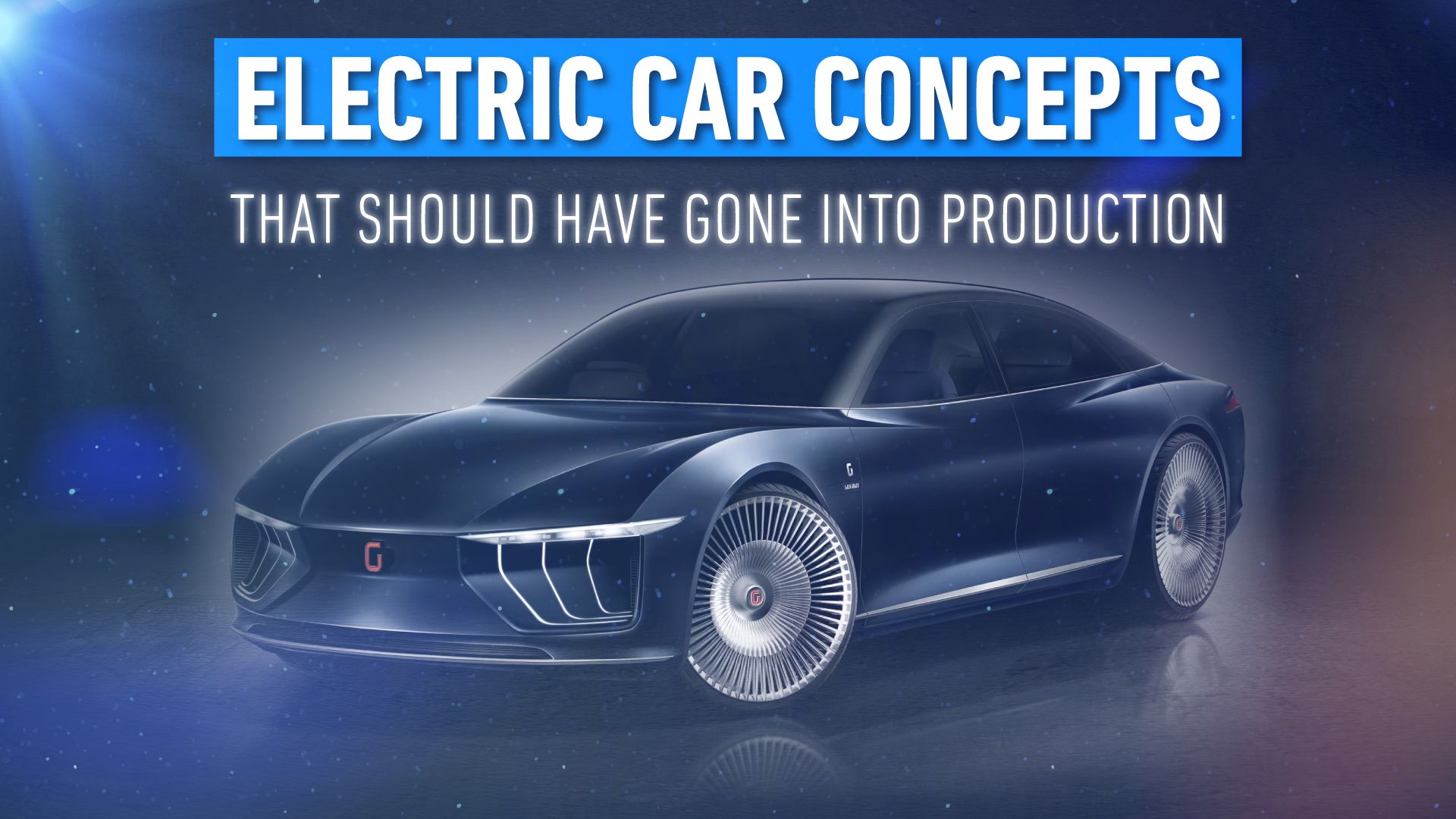
10 Electric Car Concepts That Should Have Gone Into Production
Companies release electric car concepts that dazzle, and then shelve them away, never to be seen again. Here’s 10 that deserve a production run.
10 Rolls-Royce Spectre
Starting MSRP: $422,750
We all knew Rolls-Royce was going all-electric, but the Spectre came much sooner than any of us were expecting. In the brand’s own words, it was only ready to create an EV if it was happy that the industry was ready for it. It suggested this would take a good few years, but shortly after that quote, the Spectre’s lengthy teaser strategy commenced. Rolls-Royce built the new EV coupe on its existing Architecture of Luxury platform, so the silent new EV retains most of the ICE Phantom’s plush characteristics.
Performance Specifications
|
Engine |
Dual Permanent-Magnet Motors |
|
Transmission |
Single-Speed Automatic |
|
Horsepower |
577 HP |
|
Torque |
664 LB-FT |
|
Driveline |
All-Wheel Drive |
|
0-60 MPH |
4.4 Seconds |
|
Top Speed |
155 MPH |
(Data was collected from Rolls-Royce)
Like the Celestiq, the Spectre’s focus isn’t on performance, but the dual-motor configuration still produces enough power to keep up with the average sports car in a straight line. It’s also a highly exclusive model reserved for the brand’s elite clientele, with a starting price that makes your heart skip a beat, before specifying any of the many optional extras.
Pros
- Completely bespoke EV
- Retains conventional Rolls-Royce qualities
- Upmarket interior quality
Cons
- No four-door alternative
- Heavy curb weight
- Only available to exclusive clients
